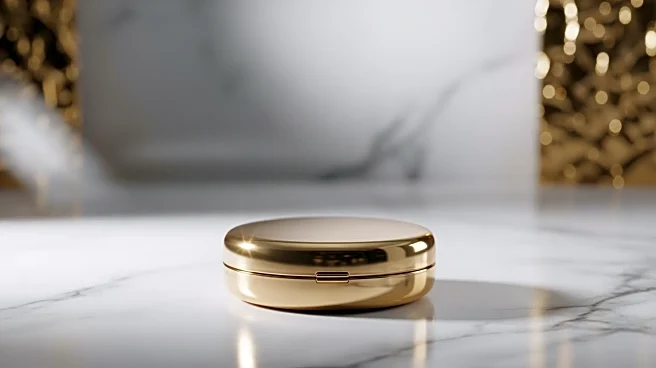What's Happening?
L'Oreal SA has agreed to purchase Kering SA's beauty division for $4.7 billion, marking a significant strategic shift for Kering under its new CEO, Luca de Meo. The transaction includes the sale of the House
of Creed perfume maker, which Kering acquired two years ago. Additionally, L'Oreal will gain 50-year licenses to Kering's perfume brands, including Gucci, Bottega Veneta, and Balenciaga, once the current deal with Coty Inc. expires. This move reverses Kering's previous strategy to expand its direct control over its beauty and cosmetics segment, opting instead for a licensing model that is less capital-intensive and potentially higher margin. The deal is expected to close in the first half of next year, with Kering receiving €4 billion in cash and royalties from L'Oreal.
Why It's Important?
This acquisition represents a pivotal change in Kering's approach to its beauty segment, potentially reducing its operational costs and debt burden. By shifting to a licensing model, Kering can focus on its core luxury fashion brands while benefiting from L'Oreal's expertise in growing beauty licenses. The deal also highlights L'Oreal's strategic expansion in the beauty industry, strengthening its position as the world's largest dedicated cosmetics and beauty group. For Kering, this move could alleviate investor concerns over its high debt levels and declining demand in key markets like China. The transaction is a testament to Luca de Meo's proactive approach in revamping Kering's operations and addressing financial challenges.
What's Next?
As the deal progresses, Kering will likely focus on reducing its debt and operational costs, aligning with Luca de Meo's strategic priorities. L'Oreal will begin integrating Kering's beauty brands into its portfolio, potentially enhancing its market presence and product offerings. Stakeholders will be watching closely for further strategic announcements from Kering's new CEO, expected next spring, which may include additional restructuring or expansion plans. The impact on the luxury beauty market will be significant, with potential shifts in competitive dynamics as L'Oreal strengthens its licensing agreements.
Beyond the Headlines
The acquisition could have broader implications for the luxury beauty industry, influencing how companies manage brand licensing and operational strategies. Kering's decision to revert to a licensing model may set a precedent for other luxury brands facing similar financial pressures. Additionally, the deal underscores the importance of strategic agility in navigating market challenges, such as fluctuating demand and geopolitical risks. The collaboration between Kering and L'Oreal may also lead to innovative product developments and marketing strategies, leveraging both companies' strengths in the beauty sector.












